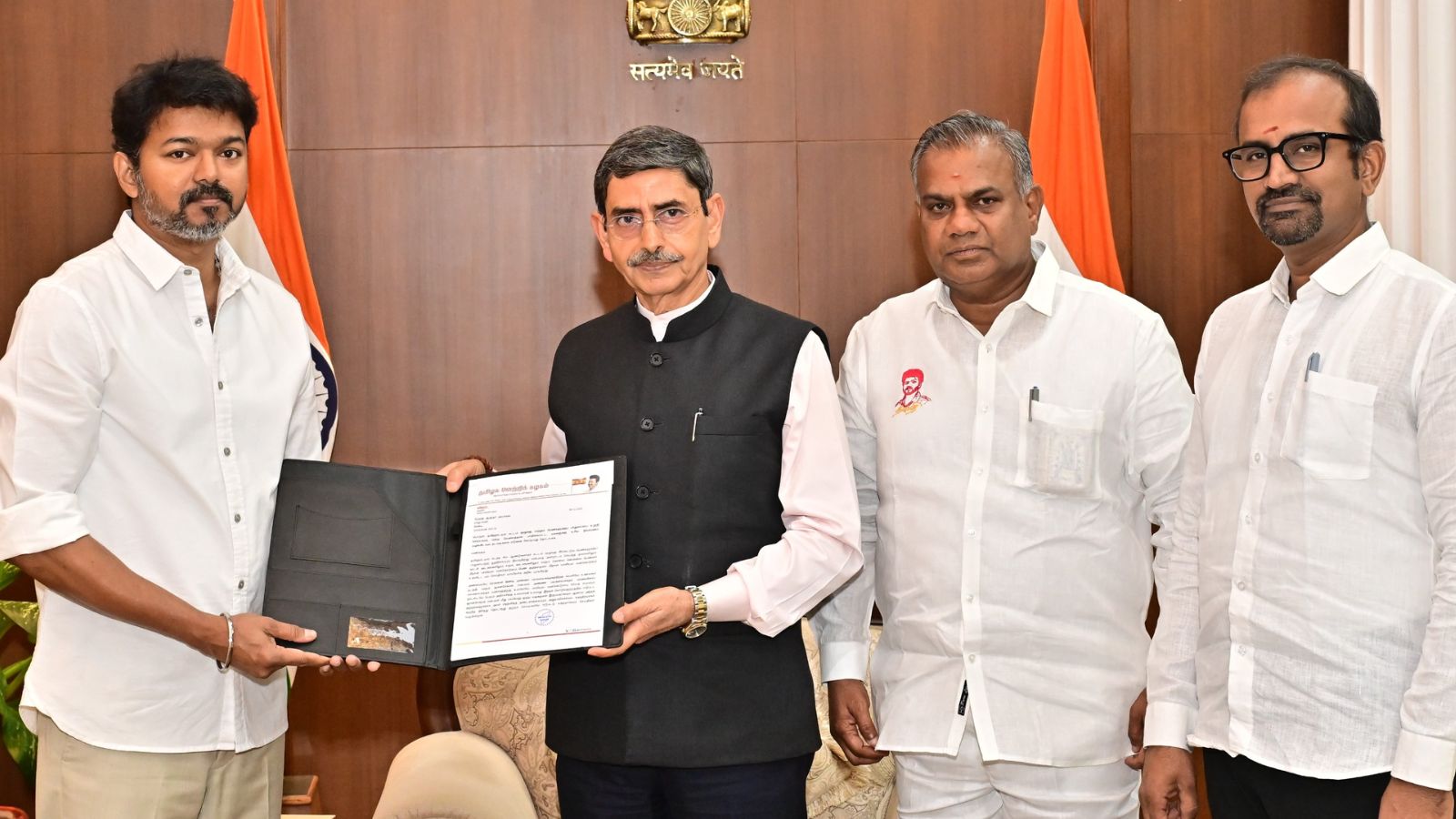 |
|
The alleged sexual assault of an engineering student at Anna University in Chennai has ignited a firestorm of political controversy in Tamil Nadu. The incident, which saw the arrest of a 37-year-old street food vendor, Gnanasekaran, on December 25th, has exposed deep-seated anxieties about women's safety and the efficacy of law enforcement in the state. The case quickly escalated beyond the immediate concerns of justice for the survivor, becoming a battleground for the ruling DMK and the opposition AIADMK, with each party attempting to leverage the situation for political gain. The intervention of actor-turned-politician Vijay, leader of the newly formed TVK party, further amplified the national spotlight on this sensitive issue.
Vijay's meeting with Tamil Nadu Governor R N Ravi on Monday marked his first significant political act since launching his party in October. His demand for immediate measures to ensure women's safety, coupled with his submission of a memorandum highlighting the deteriorating law and order situation, underscores the gravity of the situation as perceived by a significant portion of the population. While Vijay's actions were lauded by BJP state chief K Annamalai, who praised his 'firm stand' on women's safety, the move was criticized by some as 'elite politics', particularly by the DMK ally, Viduthalai Chiruthaigal Katchi (VCK), who accused Vijay of employing BJP-style tactics. This criticism highlights the complex political landscape and the intricate web of alliances that shape the response to such sensitive events.
The AIADMK has been particularly vocal in its criticism of the DMK government, accusing them of negligence and attempting to suppress dissent. Their street protests, involving hundreds of demonstrators carrying placards questioning the involvement of a 'sir' mentioned in the FIR, led to mass detentions by the police. AIADMK leader Edappadi K Palaniswami went so far as to accuse the government of attempting to shield those higher up connected to the crime, a claim vehemently denied by the ruling party. This stark political divide underscores the extent to which the Anna University assault has become a partisan issue, overshadowing the plight of the survivor and the broader concerns about women's safety. The accusations of political interference and cover-up further complicate the already delicate situation, raising concerns about the transparency and impartiality of the ongoing investigation.
The involvement of the National Commission for Women (NCW) adds another layer to the complexity of the situation. Their two-member fact-finding committee launched its own inquiry, meeting with the complainant, university officials, family members, and activists. The NCW’s prior criticism of the Tamil Nadu police for negligence and the leak of the FIR, exposing the survivor's details, further highlights the shortcomings of the initial response. The Madras High Court’s intervention, including the appointment of an all-woman Special Investigation Team (SIT) and the awarding of Rs 25 lakh in compensation to the survivor, underscores the judiciary's concern about the handling of the case. The court’s criticism of Chennai Police Commissioner A Arun for his conduct during the early stages of the investigation points towards potential systemic failures within the law enforcement apparatus.
The case of the Anna University sexual assault has transcended the boundaries of a single incident, becoming a symbol of broader societal issues relating to women's safety, law enforcement efficacy, and political maneuvering. The intense political polarization surrounding the case raises questions about the prioritization of justice for the survivor amidst the flurry of political accusations and counter-accusations. The ongoing investigations, both by the SIT and the NCW, are crucial not only to secure justice for the victim but also to expose and address the systemic weaknesses that allowed such an incident to occur and to prevent similar tragedies in the future. The long-term implications of this case extend beyond the immediate legal proceedings, potentially shaping future discussions about women’s safety policies, law enforcement reforms, and the role of political parties in responding to such sensitive events.
The outpouring of public sentiment, fueled by social media and traditional media coverage, has amplified the pressure on all stakeholders to ensure a just and transparent resolution. The incident also serves as a stark reminder of the pervasive issue of gender-based violence and the urgent need for comprehensive preventative measures and effective support systems for survivors. While the legal battle continues, the political fallout from the Anna University sexual assault case remains a significant development within Tamil Nadu's political landscape, highlighting the vulnerability of women and the challenges facing law enforcement agencies in ensuring their safety and security. The ongoing debate underscores the urgent need for systemic reform and a more unified approach towards tackling this widespread and deeply disturbing problem.
